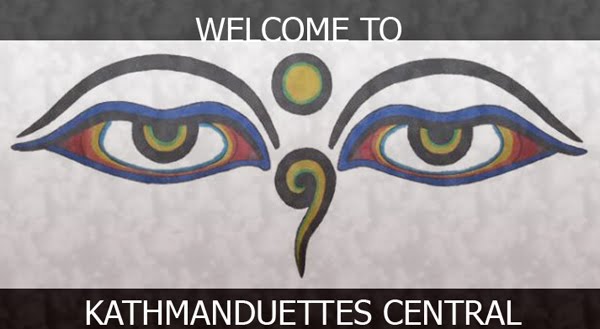We still do not venture out from our safe perimeter of the Dusit area: there are enough shops, restaurants and services here that we can have access to without really having to go into the business district. This is the old genteel (relatively) part of town where the Chitralada Palace and the Zoo and some other palaces converted into government buildings and schools are located.
True, the damage has been extremely high, estimated to over 1 million dollars: some buildings, the metro and subway were also trashed, as with the roads and shop houses surrounding the main demo area.
This comes as a surprise to most foreigners: the Thais are always conciliatory, smiling, and no conflict fazes them: but when they vent their frustrations – watch out. The Reds started off with their support for the foreign Prime Minister who was convicted of white collar crimes in the billions at the cost of the country, but they view him as a benevolent PM who brought in medical care at 30 baht, and widely projected as being pro-poor. The current PM is British-educated and pigeon-holed into the Elites box. The Reds say he was unlawfully made into PM although the process was a choice of parliament with elections to be held: they were restless and wanted earlier elections.
They were funded mostly and goaded on by Thaksin although he denies this, despite lots of evidence to the contrary. Then the Reds had some militant elements and they started shooting back at the military, with collateral deaths ensuing. They were also responsible for the burning of tires, a telegenic way of showing their protest on TV. This is said to be the most violent day in Thai history. Then the mob took over. The military had no choice but to choke them off in their area, despite asking them to leave, repeatedly, the area. We feel that a lot of the violence and deaths (about 73) could have been prevented while the road map (peace plan of the government) was accepted by the Reds and they could have attributed that as one of their victories. With the violence, most Thais have blamed the Reds for this, and a black mark on their organization.
The King, as a constitutional monarch, is ill and in hospital and unable to intervene. He had a public appearance at a function a few weeks back and advised people to be cautionary and be peaceful.
One thing, as farang residents, that we are thankful for: this was an internal Thai matter, and did not involve any foreign intervention or interests. They have survived a devastating natural tsunami, they will survive this political tsunami too.
Thr reconstruction and reconciliation will take some time: they have moved the clock back and no longer known as one of Asia’s most vibrant economies: foreign investors are re-thinking about coming in or expanding. On Thai TV yesterday as he announced that order had been restored, the PM said he was taking the country on a path of national reconciliation. “We are living in the same house,” he said. “I invite all of you to join the reconciliation process.” May 2010
